A Festival in the Year of Natural Scotland
14 – 16 June 2013, Comrie Croft, Perthshire, Scotland
Twelve brilliant reasons you should join us on this fantastic permaculture journey
(A look at the Permaculture Scotland Convergence, through the lens of David Holmgrens twelve principles)
Obeserve & Interact
All the participants at the Permaculture Scotland Convergence this year will have plenty fantastic opportunities to observe and interact with the landscape, some of the workshops lined up will introduce us to observational skills as the basis for permaculture; observing wild Scotland; plant identification; nature connection; right through to our expertly led Bio-danza (a dance with nature) workshop and all in the grounds of the beautiful Comrie Croft. These and other workshops are all about cultivating and expanding our observational skills and increasing our interaction with nature, from a mind, body and spirit perspective. We can begin to observe where we are today, here and now, which in turn will inform us about where we would like to be heading, in a future full of possibilities for having a more intimate connection with nature.
This weekend gives us an opportunity to observe and interact with each other, learning and creating community and human networks.
Catch & Store energy
What gives us energy, motivation and support? How do we store that energy and make sure our future and our planet is safe?
We can begin by learning about building a community business; creating Eco-villages; learning more about how we integrate people care into our day to day lives and our communities; how a local community built a successful resilience plan; and how through touch we can reconnect with our own vibrant energy and intuition. We will also learn about re-using materials to create useful tools; and designs for catching and storing energy.
Sharing information, skills and knowledge helps us to ‘catch’ and store the energy and with so many people around we are all bound to learn something new. Of course to be able to do all of this we need to feed our bodies, so we will be offered some amazingly healthy and tasty food to help re-charge our batteries and tantalise our taste buds.
Obtain a Yield
If ever there a was an opportunity to obtain a yield in terms of learning, exchanging ideas, sharing experiences and being with others interested in permaculture, here in Scotland (and further afield) then this is it!
The two days offer an amazing platform for some of the country’s experts, innovators and ‘apprentices’ to share with us their learning, and for us to obtain many yields. Educational yields are key to this event – from the amazing Forest School activities for the kids to the workshops. Education will be of different types – including head (knowledge), such as how to harvest wild plants for medicinal purposes or how to mimic nature (biophilia); of hand such as building a rocket stove or planting a herb gutter bed; and of heart such as healing through the Work that Reconnects. There are so many yields which can come from this weekend; the list is endless, and limited only by our imagination.
Apply Self-Regulation & Accept Feedback
Feedback is all around us, and it is probably safe to say that those coming along to this convergence will be well aware that our planet is giving us feedback continuously. Luckily some of us have the eyes and ears to listen, and we are starting to apply self-regulation, accepting the feedback is sometimes not so easy.
Permaculture offers us design tools which support us to learn more about how to apply self-regulation & accept feedback. Through observation and careful design we can begin to mimic nature, working with and not against her. We can hear about forest gardening methods; designing our back gardens so that they produce food and support wildlife; mimicking natures patterns and cycles; we can use creative writing to learn about our inner consciousness; we can also hear about what people have learned through using permaculture designs over many years of experimenting and growing.
Knowing how to apply self-regulation and accept feedback can help us to feel empowered and more creative.
Use and Value Renewable Resources
How can we meet more of our needs with renewable resources? This is not just about solar panels or wind turbines, but using what skills we have, and sharing our skills and gifts with others.
Again, this weekend will offer many opportunities to get to know people who can teach, support and encourage us to use and value renewable sources. We will learn through nature how to create relational resiliency; have an introduction to The Work that Reconnects (based on Joana Macy’s Deep Ecology); we will hear about working towards community; and also how the teachings of the Tao complement many permaculture principles, learning from ancient wisdom. There will be presentations on diploma designs demonstrating how to use and value renewable resources.
Find out what you can create, what skills you already possess, what new things you would be inspired to try out, how you can share your skills and gifts, and how to value your own resources.
Produce no Waste
Permaculture is all about getting maximum yields from minimum efforts, literally catching and storing energy and producing no waste, or creating a closed loop system. We will hear about the world-wide Transition Movement and the ideas and innovations behind its success as a community movement. Learn about Systems thinking in Action; more about Forest Gardening and growing perennial vegetables; how to identify wild food and herbs which we can eat and use for curative purposes.
We will use the two days to pack in as much information as we can, but also provide spaces to rejuvenate, chill-out, be creative, sing and dance. How is that for producing no waste?
Design from Patterns to Detail
What patterns are at play? How do we benefit from existing patterns in nature? How do we identify our own spirals of abundance (or erosion) and enhance our positive patterns, making them work for us in a way that creates amazing details in our lives?
We will hear about how to get a Transition Group going in our community; the highs and lows of setting up a small business; explore how The Natural Step (TNS) might compliment permaculture and help us to thrive and survive economically; more about ethical and co-operative businesses and how they have grown; and with practical tasks offering us hands-on chances to look at patterns and details in nature, we will learn first-hand how we can incorporate this into our own lives and designs.
This whole Convergence has come together as a design from patterns to details and we just know that it is going to work in setting the scene for creating an amazing spiral of abundance.
Integrate rather than Segregate
Which aspects of our lives can we bring together to form a more solid ‘foundation’ on which to build a more resilient future?
Again, a fantastic opportunity over the weekend to come together; to create integrated systems and circles; to unite and become stronger; to make friends and learn new skills. Through working together creating art, tools, designing growing spaces, dancing, and making chocolate, we will be integrating with others in an educational but meaningful way. The opportunities are boundless for integration here, and the land rich for sowing seeds.
Use Small & Slow Solutions
There are many clichés out there on this principle “Rome wasn’t built in a day” being the most commonly used, but we did literally have to learn to crawl before we walked, and every baby step is another step in the right direction, and at this stage in our evolution, any small step (however slow) in the right direction, can help build momentum and make a difference.
This is the 4th consecutive year of the Permaculture Scotland Working Group organising a gathering, and this is the next step – getting gradually more ambitious each time.
There is an opportunity to hear about other permaculture projects in and around Britain; and also about what is happening around the world in terms of innovative and resilient projects; how by working together as communities each compost heap we make and seed we plant assists in regenerating our earth and our resources. We will look at how by involving children in permaculture designs and plans, we are preparing for a healthier future generation; and by learning how to grow our own food or buying from local growers, we are helping to take the pressure off farmers from around the globe.
Of course we will also have time for slow chats, slow food, slow contemplation, slow exercises, slow breathing and some beautiful slow solution finding!
Use & Value Diversity
How many different skills do you have? How many skilled and creative people do you know? How do we learn from other cultures and languages? How do we learn from the vastness of biodiversity and apply it to our gardens, lives and communities?
We have participants coming to the Convergence from far and wide, some who are new to permaculture and quite a few who are ‘old hands’. Diversity and opportunities to value it, will literally be handed to us on a plate at this convergence: via the people; the workshop subject matters; in the places that we can go to; the conversations that we can have; the snippets of information we can hear; the learning of different methods and ways we can apply permaculture principles to our lives; in the sharing of the experience; in the welcoming of new people; in gratitude for those prepared to share their knowledge; through the expression of art, music, crafts, practical tasks, food, and through our re-membering, our movements, our language and our very good fortune to be able to be in this wonderful place together.
Use and Value Edges & the Marginal
We will be able to explore many edges throughout the weekend: the edges of our comfort zones, and knowledge, our abilities to give and receive, connect with people outside our circles of friends and/or family and the many edges created by bringing such a diverse group of people together.
We will of course be observing the edges in nature, and the abundance sometimes ignored in marginal spaces. Here we will be in a country at the edge of Europe, with a chance to explore new relaxation methods; think about how we can make socially engaged permaculture and art work; learn ways of using new technologies to make an impact, through video and working with community projects, and how about if we begin to think like a bee? And we can, if we chose, value all of the new edges which will be formed, and learn how the marginal can compliment what we are already doing in making changes.
Creatively Use & Respond to Change
Change can be fraught with tension and sometimes provoke resistance, but learning to creatively use and respond to change helps us to become more supple, adaptable, resilient and fortified. Change when it happens can bring about positive chain reactions, and opens up new avenues for us to stroll down, appreciating the views.
The Transition Movement (with its roots firmly planted in permaculture) looks at how we can make change more palatable, how we can ease ourselves into the changes, and make bridges between the present and the future. Enhancing our skills, re-learning traditional skills, building on our knowledge base all help to support us with changes. The development of the ScotLAND project and connecting up of existing permaculture projects, gardens and people will be also be working towards supporting and assisting us with change. Hear all about both from those who are steering the projects.
In short, coming to the Permaculture Scotland Convergence at Comrie Croft and meeting new people, catching up with old friends, eating delicious foods (cooked for you by our wonderful caterers) having a break from the routine, seeing new horizons, stepping on new ground, inspiring our creative juices and opening our eyes to change can only lead to a rejuvenation of the head, heart and hands, literally.
We look forward to seeing you there for all the sharing, learning, growing and celebrating!!
Kilts are not compulsory 😉
Tracey Hay
June 2013
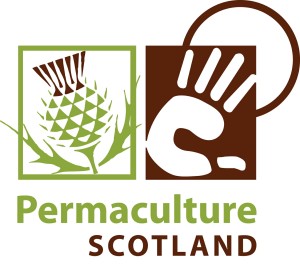
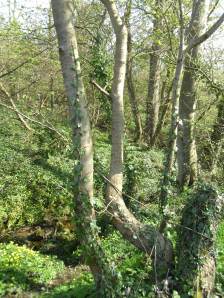
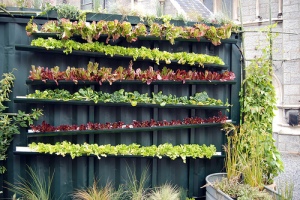
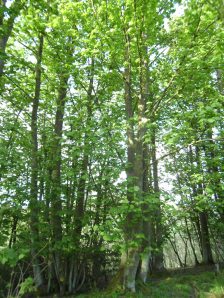
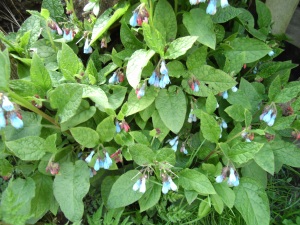
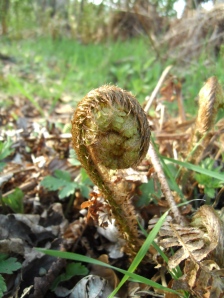
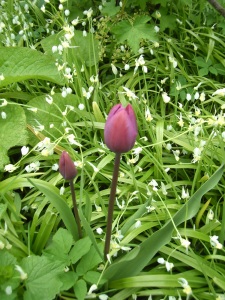
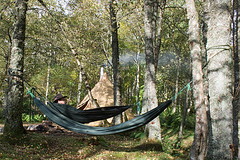
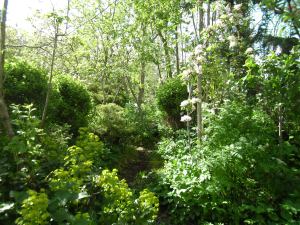

Pingback: Permaculture Scotland Convergence – applying the permaculture principles | What grows from a seed?